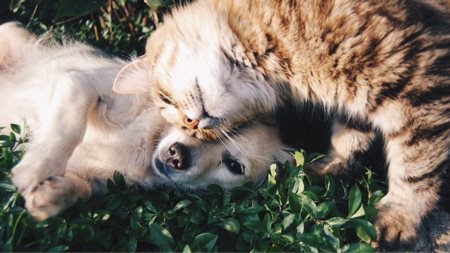Many animal lovers believe that pets are an extension of their immediate family, so when it’s time to move, their furry four-legged friends are moving too.
This means looking for a property that is pet friendly, which can be difficult to do when many properties have a strict “no pets allowed” policy.
If your landlord or body corporate doesn’t allow pets on the premises as per the lease agreement or rules, it’s best to follow guidelines to avoid any possible misunderstandings.
Some landlords allow pets on the premises, and sectional title properties that allow pets will request that you receive written permission to have one from the body corporate. While this is so, it’s important for you to know what types of pets are allowed in your home, as rules may only allow certain types of pets but prohibit others. For example, some landlords and body corporates may allow cats, but prohibit having a dog on the premises.
You also need to decide what type of animal you’re getting. Certain types of animals may not be suited for certain spaces. You wouldn’t get a big dog in a one-bedroom apartment with no garden space, so choose accordingly.
Once you have your pet, you need to make sure your space is pet friendly. Make sure you give your pet enough space to adjust to its new environment. Any hazards that your pet could come in contact with must be put away. An example is potted plants, which should be kept away from your pet as certain plants can be poisonous to animals.
Making sure your pet is vaccinated is important. This will prevent your pet from picking up preventable diseases from other animals and possibly spreading them.
Regular visits to the vet and ensuring that your pet is spayed or neutered is right up there with vaccinations. Animals that aren’t spayed or neutered tend to make a lot of noise, especially during mating season, and this could be frustrating for your neighbours.
Cleaning your space is also important, as pets are messy and can often leave odours. A regular cleaning of carpets, couches and other furniture is necessary to remove dirt and fur.
Ensuring that your pet doesn’t damage property is vital. If your pet damages any property, alerting your landlord and getting it fixed should be a top priority.
Training your pets can be beneficial in helping you manage their behaviour, especially if you own a dog.
Remember to hire a qualified pet sitter should you leave town, or take your pet to an SPCA that offers boarding for animals. Never leave your pets unattended for long periods of time.




